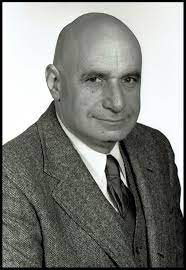Berger, Peter

Bio: (1929-2017) Austrian-American sociologist. Peter Berger was born in Austria but emigrated to America in 1946. For over half a century, he was married to Brigitte Berger, an eminent sociologist, with whom he also collaborated professionally. Berger became famous for his book The Social Construction of Reality (1966), which he published together with Thomas Luckmann. This book brought Alfred Schütz's phenomenological approach closer to the English-speaking world. Berger is best known for the influence he left on the sociology of religion, especially in the areas of secularization and charisma, and he founded The Institute on Culture, Religion, and World Affairs at Boston University in 1985.
In his opinion, society is a dialectical phenomenon, because it is at the same time a product of human action, but it also affects it. The product of that dialectical relationship is the perception of the social environment as an external and independent reality that affects us. Berger calls this reality a "nomos." Religion envelops nomos with an aura of holiness, so nomos becomes a sacred cosmos. Religious rituals are mechanisms that remind us of the meaning of culture and social institutions. In analyzing secularity in modern society, Berger emphasizes the influence of Protestantism, which encouraged a rationalist approach to religion and rejected mysticism and magic. In addition, the spread of secularism and non-religiousness is influenced by the "religious market", which is especially pronounced in the United States.
Fields of research
Christianity Customs, Social Magic Protestantism Rationality Religion Secularization AtheismMain works
The Noise of Solemn Assemblies (1961);
Invitation to Sociology: A Humanistic Perspective (1963);
The Social Construction of Reality: A Treatise in the Sociology of Knowledge (1966);
The Sacred Canopy: Elements of a Sociological Theory of Religion (1967);
A Rumor of Angels: Modern Society and the Rediscovery of the Supernatural (1969);
Pyramids of Sacrifice (1974);
Sociology Reinterpreted (1981);
The War Over the Family: Capturing the Middle Ground (1983);
The Capitalist Revolution (1986).

